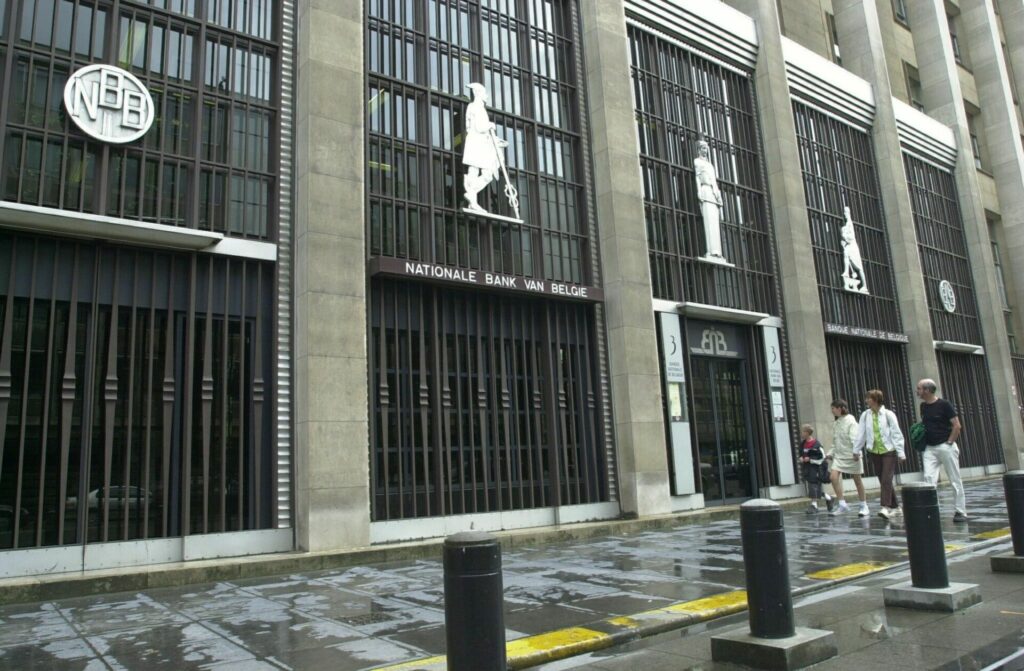Belgium's financial sector remains "among the strongest in Europe" despite a banking crisis which has recently engulfed several major Western financial institutions, according to a study by the National Bank of Belgium (NBB).
In its annual Financial Stability Report, which was published on Wednesday, the NBB claimed that risk profile and capital structure of Belgian banks differ markedly from those such as Silicon Valley Bank (SVB) and Credit Suisse, both of which collapsed earlier this year. (Credit Suisse was subsequently bought by rival Swiss bank UBS.)
"The Belgian financial sector proved to be very resilient to the events in the US and Swiss banking sectors," the report noted. "Belgian financial institutions are... very different from institutions such as Silicon Valley Bank or Credit Suisse, and are among the strongest in Europe."
Prior to its collapse, Credit Suisse was the 17th biggest lender in Europe, while SVB was America's 16th largest commercial bank, with operations in numerous European countries including Denmark, Germany, Ireland, and Sweden.
'We must not abuse customer patience'
In its report, the NBB highlighted Belgian banks' "solid solvency position", their "ample liquidity buffers", and their "diversified and stable" funding base as key reasons for their rude financial health.
Furthermore, the report noted that Belgium's financial institutions "have prudently managed the interest rate and liquidity risks inherent to a period of rising interest rates" - a reference to the fact that the European Central Bank (ECB) has hiked interest rates seven times over the past year as it attempts to curb Europe's soaring inflation rate.
More controversially, in an accompanying press release the NBB also emphasised that Belgian commercial banks' solid financial position implies that there is room for them to "gradually increase" the interest rates on their customers' savings accounts.
"Belgian financial institutions must continue to adapt to the new operating environment while conserving their strength," the report noted. "A case in point is the remuneration of savings deposits, which are an essential source of stable funding for loans to Belgian households and non-financial corporations. Banks should support this stability by gradually increasing the remuneration of these deposits while taking into account the development of their interest income."
Related News
- Belgian banks push back against Government calls to raise savings rates
- A troubling uptick: Inflation increases in eurozone for first time in six months
The report's recommendation was later re-emphasised by NBB Vice-Governor Steven Vanackere. "We understand that we need to keep an eye on stability, but at the same time we encourage the Belgian sector to do what is necessary to ensure the loyalty of savers," Vanackere said, in comments that were reported by Belga News Agency. "We must not abuse their patience."
The NBB's proposal was arguably corroborated by an analysis published last month by the IESEG School of Management. The study found that in February 2023 the average rate on Belgian customers' savings deposits was just 0.35%, despite the fact that the rate earned by Belgian banks from parking their excess cash overnight at Belgium's central bank (the ECB's deposit facility rate) was 2.5% (now 3.25%).
"While the ECB has already raised its key rates by 3.5% [now 3.75%] over a few months, the increase in the rates offered by Belgian banks on customer savings deposits has remained very limited... In Belgium, there are margins for banks to increase the rates on savings deposits," the study noted.
However, any rate increase on customers' deposits is likely to be fiercely resisted by Belgium's commercial banks. Febelfin, the Belgian financial sector federation, recently warned that any government-mandated savings rate hike would be "ill-considered" and "could profoundly affect the stability of the banking sector".

